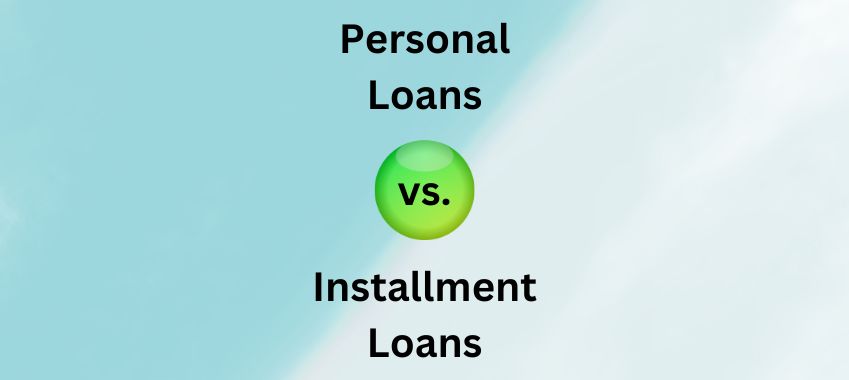#Personalloan #Installmentloan #getmoney
In today’s fast-paced world, financial emergencies or unexpected expenses can catch us off guard, leaving us in need of immediate funds. Fortunately, personal loans and installment loans are two popular options that can provide the necessary financial relief. Whether you’re looking to consolidate debt, cover medical expenses, or fund a major purchase, understanding the differences and benefits of personal and installment loans can help you make an informed decision. In this post, we’ll explore the world of personal loans and installment loans, highlighting their features, advantages, and how they can help you.
Personal Loans: A Versatile Solution for Various Financial Needs
Personal loans are unsecured loans that can be used for a wide range of purposes. Unlike mortgages or auto loans that are secured by collateral, personal loans are based on your creditworthiness and income.
Here are some key aspects of personal loans:
a. Application Process: Applying for a personal loan usually involves submitting an application, providing documentation of your income and credit history, and undergoing a credit check.
b. Loan Amount and Term: Personal loans typically range from a few hundred to several thousand dollars, with repayment terms ranging from a few months to several years.
c. Interest Rates and Fees: Interest rates for personal loans can vary based on your credit score, but they are generally lower than those of credit cards. Some lenders may charge origination fees or prepayment penalties, so it’s important to review the terms and conditions.
d. Flexibility and Usage: One of the significant advantages of personal loans is their versatility. You can use the funds for debt consolidation, home improvement, wedding expenses, travel, or any other financial need.
Installment Loans: Steady Repayments for Predictable Budgeting
Installment loans give borrowers a lump sum of money upfront, which they can pay back over a fixed period of time through regular fixed payments. These loans are ideal for those who prefer structured repayment plans.
Here’s what you need to know about installment loans:
a. Application Process: The application process for installment loans is similar to that of personal loans, requiring documentation of income and credit checks.
b. Repayment Structure: Installment loans are repaid through a series of fixed monthly payments. This makes budgeting easier, as you know exactly how much you need to pay each month.
c. Interest Rates and Fees: Like personal loans, interest rates for installment loans depend on your credit score and the lender. It’s essential to compare rates and fees to find the best loan option for your financial situation.
d. Longer-Term Commitment: Installment loans often come with longer repayment periods, ranging from a few months to several years.
Benefits of Personal Loans and Installment Loans:
a. Quick Access to Funds: Both personal loans and installment loans can provide fast access to funds, allowing you to cover immediate expenses.
b. Credit Building: Timely repayment of these loans can positively impact your credit score, helping you establish a solid credit history.
c. Lower Interest Rates: Compared to payday loans or credit cards, personal loans and installment loans typically offer lower interest rates, resulting in potential savings over time.
When faced with unexpected expenses or in need of financial assistance, personal loans, and installment loans can be valuable resources. By understanding the differences and benefits of these loan types, you can make an informed decision that aligns with your financial goals and provides the necessary flexibility.

